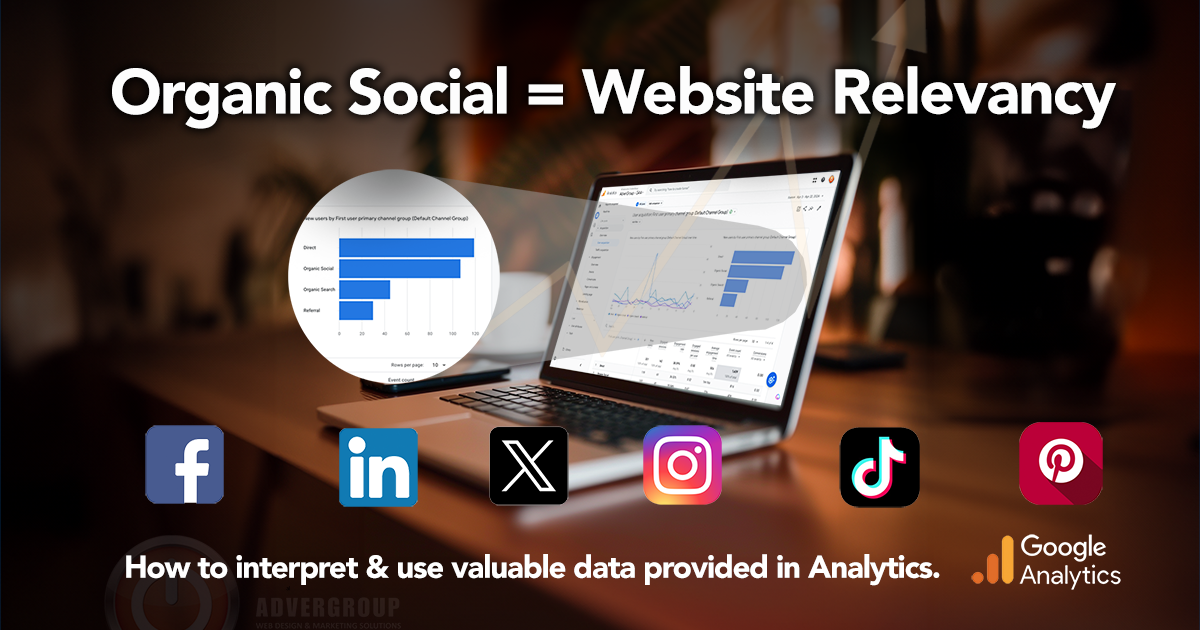What is organic social traffic as referred to in Google Analytics?
First, it is important to understand that "Organic Social Traffic" is the measured activity on your website that is sent to your website via social media links (commonly referred to as "social referrals"). In other words, When a visitor lands on your website or landing page by clicking a link shared on a social network, it's considered a social referral.
Organic social media encompasses the no-cost content - posts, photos, videos, memes, Stories, and more - exchanged among users, including businesses and brands, across social networks. Organic traffic refers to the number of visitors to a website who arrive through unpaid, natural search results. In Google Analytics, organic social traffic specifically refers to the visitors who come to your site from social media platforms without clicking on any paid advertisements or promotions. This type of traffic is valuable as it indicates that users are finding your website through genuine interest and engagement with your content on social media.
Organic social traffic can be a powerful tool for businesses looking to increase their online presence and reach new audiences. By creating engaging and relevant content on social media, businesses can attract more organic traffic to their websites. Additionally, this type of traffic often has a higher conversion rate than other sources because these visitors have shown interest in the brand or product before arriving at the website .
Organic Traffic Can Help Your Website Relevancy and Ranking in Search Engines
One way to increase organic social traffic is by regularly posting high-quality content on social media platforms. This can include blog posts, images, videos, and other types of content that are relevant to your target audience. By consistently providing valuable and interesting content, businesses can build a loyal following on social media and drive more traffic to their website.
Using hashtags strategically can also help increase organic social traffic. Hashtags allow users to discover your content through specific keywords or topics. By using relevant hashtags in your posts, you can reach a wider audience outside of your followers and potentially attract new visitors to your website.
In addition to social media, search engines also play a crucial role in driving traffic to websites. One factor that search engines use to determine the relevancy and ranking of a website is the amount of quality backlinks it has. Backlinks are links from other websites that lead back to your site. They act as votes of confidence for your website's content and can improve its credibility and authority in the eyes of search engines.
To increase backlinks, businesses can reach out to relevant websites and ask for guest blogging opportunities or collaborate on content creation. This not only helps build relationships with other businesses but also provides an opportunity for more exposure and potential backlinks.
Furthermore, regularly creating valuable and informative blog posts help produce content to share on social media. It is hard to implement a good and effective social media strategy without quality content existing on your website (home-base).



